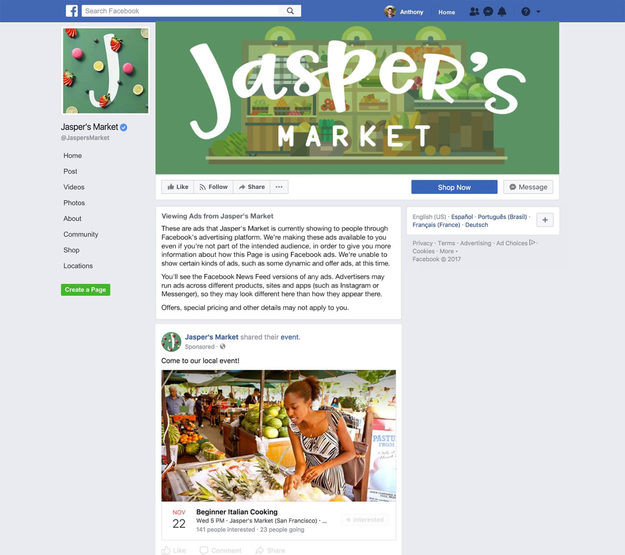Facebook plans to make political advertisers register for the program, and will track down anyone trying to avoid inclusion.
Almost a month ago, Facebook CEO Mark Zuckerberg promised in a Facebook Live video that the company would require a new level of transparency for political ads. This came in response to outcry over the company’s disclosure that Russian trolls bought more than 3,000 ads on the platform.

The known Russian troll factory spent more than $100,000 to buy the ads before and after the 2016 election. A portion of the ads were targeted by interest or geography, meaning that only the people who fit the ad parameters could see them in their News Feed.
After initially keeping them private, Facebook recently handed over the ads over to congressional investigators. And today it announced the specifics of how it plans to change the way political sponsored posts will be shown in the News Feed, and the information they will disclose.
Facebook also announced a new measures that will affect all non-political sponsored posts. Every page will soon have a “View Ads” option that will enable you to see the current campaigns it has running.

This starts rolling out in Canada next month, and will eventually move to the US and other markets. This general ads page will only show current campaigns. But a Facebook executive said the company plans to build an archive for election ads.
“However, when we expand to the United States we plan to begin building an archive of federal-election related ads so that we can show both current and historical federal-election related ads,” wrote Rob Goldman, Facebook's VP of Ads, in a blog post provided to BuzzFeed News in advance.
The post said that Facebook's efforts to change political sponsored posts will begin in the US for the 2018 federal election cycle. It will then be rolled out in other countries. The election ad archive will be collected into four year cycle
Once rolled out, political sponsored posts will carry a “Political Ad” label under the name of the page that placed it. There will also be an “i” icon you can click to reveal more information about the entity that paid for the ad.

Once clicked, the “i” icon pops up a card of information about the purchaser, gives you a link to view their other ads, or enables you to follow them.

One big question is how Facebook will determine what is and isn't a political ad.
“As part of the documentation process, advertisers may be required to identify that they are running election-related advertising and verify both their entity and location,” Goldman wrote.
After a page is verified as a political advertiser, its ads will show the additional information about who they are, and their ads will go into a database of all election ads for that election. Facebook will also enable people to search and see how much money is being spent by the advertiser, the number of ad impressions being generated, and information about how ads were targeted.
As for pages that try to avoid being part of the political ads program and tracking, Facebook is planning to track them down.
“For political advertisers that do not proactively disclose themselves, we are building machine learning tools that will help us find them and require them to verify their identity,” Goldman wrote.
The company has not said whether it will roll out similar transparency features for sponsored posts on Instagram, which it also owns.
Quelle: <a href="Here's How Facebook Will Soon Let You See Who Paid For Political Ads“>BuzzFeed
Published by